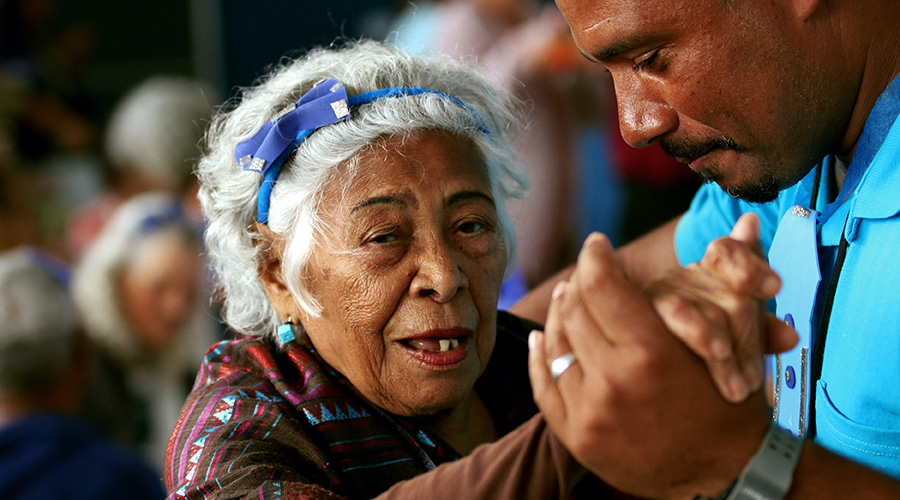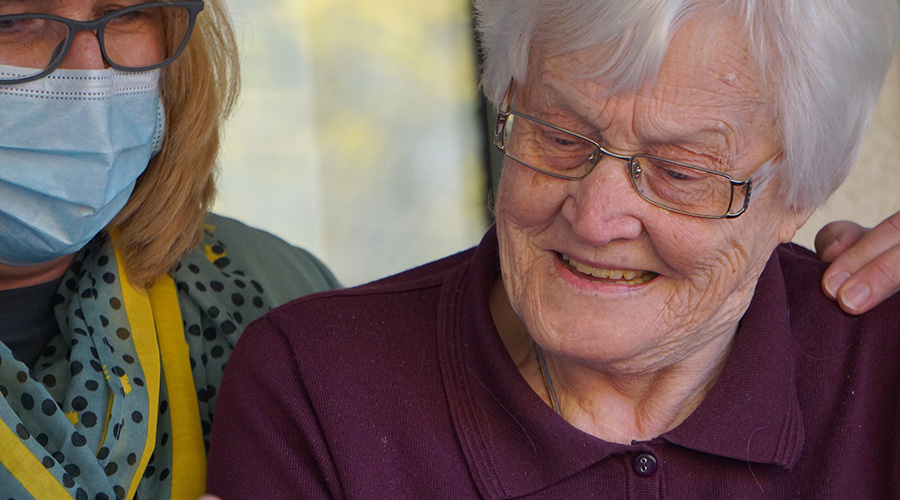· 6 min read
How Occupational Therapy Can Help Seniors at Home
Occupational therapy helps and enables people in all age brackets to lead fulfilling lives, whether these are people living with disabilities or aged.

By: Rosemarie Tamunday Casanova — RN, BSN, MHA
Occupational Therapy awareness month is a great time for us all to reflect on the vital roles that occupational therapy plays in the lives of millions of people in different scopes of life through out their lifespan.
Occupational therapy helps and enables people in all age brackets to lead fulfilling lives, whether these are people living with disabilities, are aged, or injured. However, today we will be looking specifically at how occupational therapy has and can help seniors at home. When old age comes, sometimes it does so with many challenges, some of which may secondarily lead to injuries.

Occupational therapy provides the required rehabilitation to help you get back on your feet and back to your daily routines. Occupational therapists can also help to slow down the progress of degenerative disease that are common in the elderly. Seniors are more likely to suffer from degenerative conditions such as arthritis, Parkinson’s, and strokes that can leave them partially or completely incapacitated. It is with the help of occupational therapists that rehabilitation can occur.
The history of The occupational therapy profession
Occupational therapy is believed to have stemmed from the arts and craft movement. Initially, there wasn’t any profession such as occupational therapy. It however evolved to provide a holistic point of view to care, looking beyond medicine to find a provide a sense of productivity and mental achievement.
At about the 1800s, medical practitioners started to recommend and prescribe moral treatment for patients in sanatoriums and mental hospitals. During the First World War, the profession saw its initial boom as a lot of injured soldiers required some level of activity in order to assist them resume their daily lives and roles. It was then that professional occupational therapists became sought after and schools began to incorporate a training curriculum to train OT professionals.
After the war, there was a need for cohesion to properly organize and promote the profession to both medical professionals and to the public. In the United States in 1917, it emerged as a profession in its own right when the National Society for the Promotion of Occupational Therapy was first established. Today, the same society is known as American Occupation Therapy Association (AOTA).

The association played an important role in the management of people suffering with tuberculosis, polio and AIDS. Schools began to adopt the idea of employing occupational therapists in 1975 to increase the abilities of children with disabilities to actively participate in regular activities in school. These actions birthed the enactment of a legislation known as the Enactment for all handicapped children act (PL 94-142).
From its humble beginnings, occupational therapy has now become deeply rooted and perhaps indispensable in the care of the public. To become one, you would have to earn a masters degree as a requirement, with all the programs being accredited by the Accreditation Council for Occupational Therapy Education.
As of 2019, there were 132,000 occupational therapists in the United States of America with a ten year estimated growth rate of 15.8%. Occupational therapists are more employed by the general medical and surgical centers and health specialty industry. Other places where they work are outpatient facilities, administration of human resource programs , Nursing care facilities , elementary and secondary schools as well as individual and family services.
How can occupational therapists help seniors at home?
Although only about 2% of occupational therapists work in individual and family services, their roles can not be underestimated. Their importance in homes stems from the risks and vulnerabilities associated with the elderly. If you have a parent or relative struggling to complete daily routine tasks by themselves, then this might be what you need.
Aging can be challenging for some persons, losing that ability to carry out usually easy tasks can be confusing and even frustrating. By enrolling the services of an occupational therapist, you can benefit from the following :
Overcome the Struggles of Routines
A significant part of their job is to help you overcome the struggles of adapting to the new normal of everyday life. Activities such as walking, eating , bathing, self grooming may now be done with the help of professional assistance. Occupational therapist teach the elderly new life hacks to live by. They learn easier, modifications and exercise techniques that help them adapt to doing things for themselves as well.

Prevention of Falls
Seniors are more vulnerable to falls at home. In fact, one in every four elderly person has experienced this at one point in their lives. The frequency is so much that an elderly person is seen at at the emergency unit every 11 secs as a result of injuries sustained from a fall. Sadly, some of these falls lead to death and at least one is recorded every 19 minutes. While falls may seem casual to people in other age brackets, the stakes are higher for the elderly.
Because their bones have lost some integrity, they are more prone to dislocations and fractures after such falls. In other cases, the falls could be secondary to other pre-existing conditions such as cardiovascular disease and loss of consciousness. Therapists can teach the elderly balancing techniques and muscle training that keeps the muscles toned, strong and alert for longer years.
Memory Training
We have come to believe that memory and the ability to recall comes easily and naturally. Well, that isn’t always the case with many of the elderly population. As we age, our brains tend to shrink in size and volume. Many older people start to have senile dementia, a form of memory loss brought about by age itself. For others, they may even suffer from Alzheimer’s disease, another diseases condition affecting memory. The assumption that occupational therapists only manage conditions affecting physical abilities like movement is false.
Occupational therapist can help improve the cognitive abilities of their patients. This they do by helping you map your strengths and weaknesses and then go ahead to develop modules that help strengthen those strong attributes in your cognitive rehabilitation journey. Some examples of the techniques employed in doing this is the use of memory enhancing activities like crossword and jigsaw puzzles. Other methods include the use of signs and posts on doors, handles, cabinets and other enclosed areas. In times of confusion, these memory cards are a quick way to jumpstart recall.

Home Modifications
Elderly people, especially those with other medical conditions may find it difficult adapting to their homes . Things likes steps, bathtubs, smooth floors, etc could become potential danger points for them. Occupational therapists can help with mapping of the home and making recommendations and modifications to make the home much more safer.
These modifications may include switching to walk-in showers, installing communication devices at the bedside, switching to lower beds that are closer to the floor, installation of power loft recliners and home monitoring systems such as smoke and fire alarms.
As we mark this year’s awareness of Occupational health, let us think about that family, friend or neighbor who may be in need of these services. Making these suggestions could mean a lot to them. Happy occupational therapy month!



